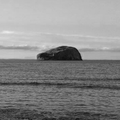-

Still Wakes The Deep’s authentic horror aims to channel Ken Loach by way of Stanley Kubrick
“In obscurity comes horror,” says lead designer Rob McLachlan
-

How Rockstar banning Cake Day helped launch a designer's career in edible games
Former L.A. Noire developer Jenn Sandercock on the overlap between feast and play
-

Still plenty of ways to make children miserable, though
-

Don't call the number if you're around other people, though
-

Keanu Reeves to play Shadow in the Sonic 3 movie as Sega announce the Year of Shadow
I'll take it over another year of mass layoffs
-

No, Jabba The Hutt isn't a Star Wars Outlaws season pass or special edition exclusive
Ubisoft clarifies that Gold and Ultimate edition only grants access to a bonus Jabba mission
-

Review: Goblin Stone review: turn-based charm spells only last so long
Goblin’ up my patience more like
-
Manor Lords performs fine on Steam Deck – it’s the controls you’ll want to watch out for
Contort your thumbs now, my lord
-
Katharine is leaving RPS, come say goodbye
And thank you for all the words
-
Supporters only: An action platformer about getting an eye back from ants affirms my belief that games need a Ronseal approach to their titles
Ants Took My Eyeball is about a man who has had his eyeball taken. By ants.
-
The Maw - 15th-20th April 2024
This week's least boring videogame releases, plus our weekly liveblog
Live
Psst! Explore our new "For you" section and get personalised recommendations about what to read.
-

Get the fastest PCIe 4.0 SSD for $139 at Amazon
Save over $50 on the Crucial T500.
-

You can get a WD Black SN850X 2TB SSD for as little as £112 but they're selling fast
Save up to £28 on this speedy SSD using the eBay app and a special discount code.
-

The Crucial P3 2TB, one of the fastest 3.0 SSDs, is on sale for just £85
Get a big chunk of storage space for a bargain price.
-

Pay $88 for this mammoth 1.5TB SanDisk Ultra Micro SD card
That's less than six cents per gigabyte.
-

“We're going to take our time and find the right partner, the right approach, and the right product that could represent the future of Baldur's Gate”
-

First instalment in Worldsoul Saga trilogy due to arrive sometime this summer
-

Working with budgets ‘ten times larger’ than Pocketpair, apparently
-

They have some big, bad cards to play if they get a second season
-

No, Jabba The Hutt isn't a Star Wars Outlaws season pass or special edition exclusive
Ubisoft clarifies that Gold and Ultimate edition only grants access to a bonus Jabba mission
-
Keanu Reeves to play Shadow in the Sonic 3 movie as Sega announce the Year of Shadow
I'll take it over another year of mass layoffs
-
Don't call the number if you're around other people, though
-
Just Cause developers Avalanche have unionised, covering over 500 employees
Agreement will take effect from this time next year
-

Supporters only: An action platformer about getting an eye back from ants affirms my belief that games need a Ronseal approach to their titles
Ants Took My Eyeball is about a man who has had his eyeball taken. By ants.
I sometimes struggle with what to write about for supporter posts (a contender this week was "why does Fallout the TV show insist Walton Goggins' character is from California when he talks like Foghorn Leghorn?"). And then we got an email about a game called Ants Took My Eyeball and I was like "Man, games need good names more often." I played the Steam demo …
-

Supporters only: Carpathian Night Starring Bela Lugosi takes Castlevania back to basics
And they call it Bela Notmuche
-
Supporters only: Fantasy games have a weird relationship with regional British accents
Whose epaulet is that pauldron?
-
Supporters only: I am obsessed with this detailed but very weird aquarium sim
Right click to throw away
Get your first month for £1 (normally £3.99) when you buy a Standard Rock Paper Shotgun subscription. Enjoy ad-free browsing, our monthly letter from the editor, and discounts on RPS merch. Your support helps us create more great writing about PC games.
See more information-

Review: Goblin Stone review: turn-based charm spells only last so long
Goblin’ up my patience more like
-

Review: Bore Blasters review: achieve catharsis as a dwarf yelling and shooting mud
Explodey hole
-

Review: Broken Roads review: this Fallout-style RPG is Vegemite and (some) magic
Dollarydoo or dollarydon’t?
-

Review: Children Of The Sun review: an intense and stylish puzzle of ultraviolence
The only option is shoot to kill
-

A very puzzling collection
-

The 15 best open world games on PC
Keep your options open
-

Review: Botany Manor review: peaceful and beautiful best-in-show plant puzzles
Come away, O human child! To the waters and the wild
-

From older classics to brand new trail-blazers
-

After six months of renovations, Cities: Skylines 2 performance is considerably less terrible
Some GPUs get more than double the frames since launch
-

Manor Lords performs fine on Steam Deck – it’s the controls you’ll want to watch out for
Contort your thumbs now, my lord
-

Manor Lords’ early access launch is built on solid technical ground, mostly
Mind your manors with this performance and settings guide
-

How to connect a Steam Deck to a TV
It's not quite plug and play
-

Still Wakes The Deep’s authentic horror aims to channel Ken Loach by way of Stanley Kubrick
“In obscurity comes horror,” says lead designer Rob McLachlan
-

Pool Of Madness is pool by way of Lovecraft
I can only imagine someone said ‘Cue-thulhu’ by mistake and took it from there
-

Screenshot Saturday Mondays: Flintlocks and chainsaw bayonets
I go on Twitter so you don't have to
-

Supporters only: Carpathian Night Starring Bela Lugosi takes Castlevania back to basics
And they call it Bela Notmuche
-

“We're going to take our time and find the right partner, the right approach, and the right product that could represent the future of Baldur's Gate”
-

First instalment in Worldsoul Saga trilogy due to arrive sometime this summer
-

Working with budgets ‘ten times larger’ than Pocketpair, apparently
-

Deals: Get the fastest PCIe 4.0 SSD for $139 at Amazon
Save over $50 on the Crucial T500.
-

After six months of renovations, Cities: Skylines 2 performance is considerably less terrible
Some GPUs get more than double the frames since launch
-
How Rockstar banning Cake Day helped launch a designer's career in edible games
Former L.A. Noire developer Jenn Sandercock on the overlap between feast and play
-
They have some big, bad cards to play if they get a second season
-
No, Jabba The Hutt isn't a Star Wars Outlaws season pass or special edition exclusive
Ubisoft clarifies that Gold and Ultimate edition only grants access to a bonus Jabba mission
-
Still Wakes The Deep’s authentic horror aims to channel Ken Loach by way of Stanley Kubrick
“In obscurity comes horror,” says lead designer Rob McLachlan
-

Dragon's Dogma 2: A New Godsway quest walkthrough
How to collect tonnes of Wyrmslife Crystals in A New Godsway
-

Dragon's Dogma 2: Convergence quest walkthrough
How to complete Convergence and obtain the Godsbane Blade
-

Dragon's Dogma 2: Flickering Shadows quest walkthrough
Here's how to visit the Dragonforged and the Oracle in Flickering Shadows
-

Dragon's Dogma 2: Nation of the Lambent Flame quest walkthrough
Here's how to venture to a new region in Nation of the Lambent Flame
-

A full walkthrough of every main quest in Dragon's Dogma 2
-

Here are the best Dragon's Dogma 2 mods you can download right now
-
Redeem these Blox Fruits codes for free EXP boosts and Beli
-
Anime Fighters Simulator codes
Nab yourself a variety of boosts and other rewards with these codes
-
Here's an archive of previous Wordle words
-
Today's NYT Connections hint and answers (Tue, Apr 16)
Need a hint for today's Connections? Read our guide for help with Connections #310










9